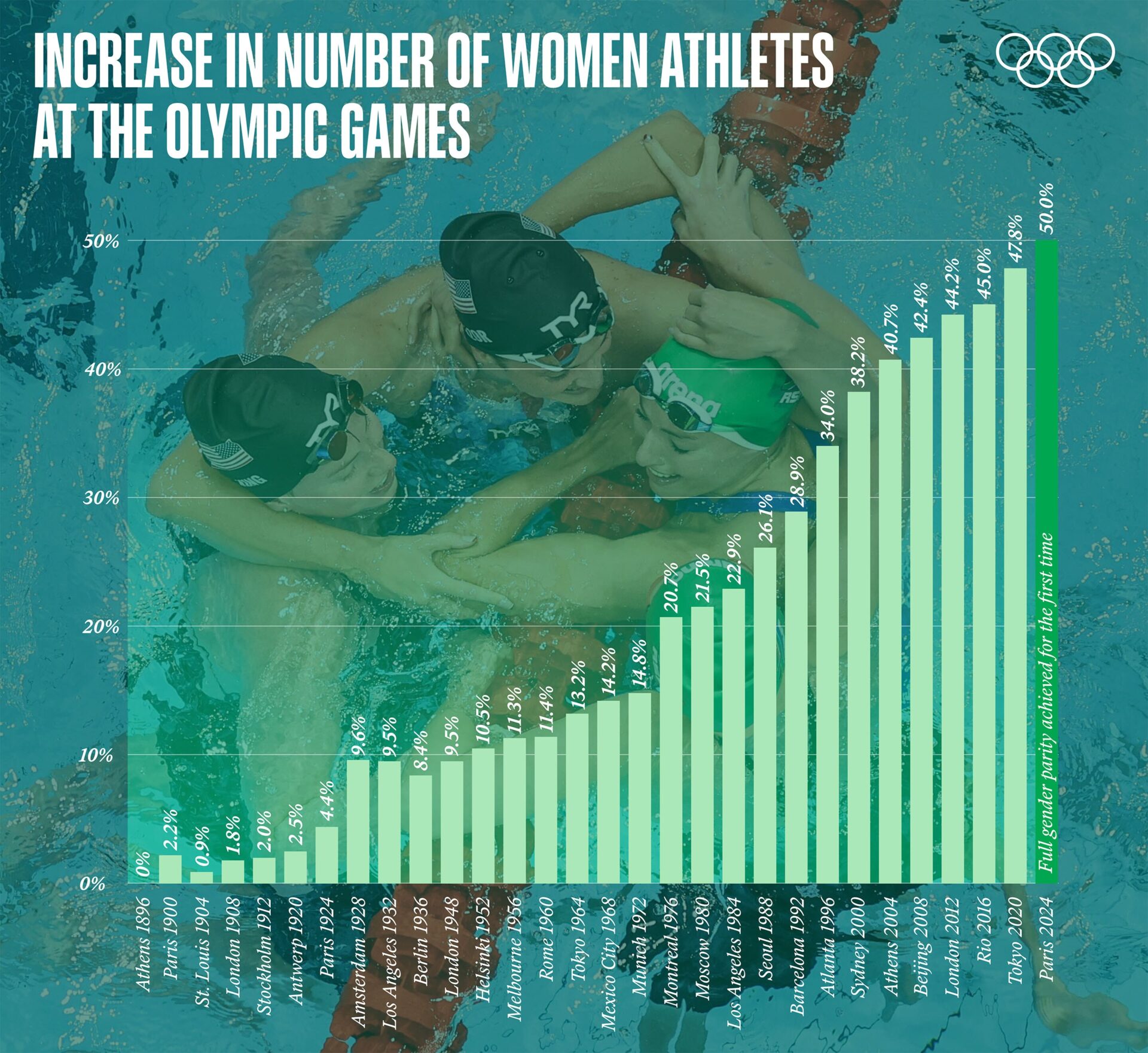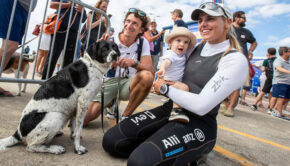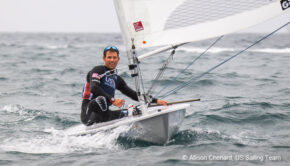Women will make history at Paris 2024
Published on July 27th, 2023
When the International Olympic Committee (IOC) gave a directive for its Olympic Sports to adjust their event programs to have the same number of male and female participants and medals for Tokyo 2020, World Sailing balked at the edict as it would require significant change for its Member Nations.
However, you don’t play chicken with the IOC for long, and World Sailing knew that the Sailing Program for Paris 2024 would need to be revised. Of the 10 events, three were changed to meet the balance for Sailing.
In this report by Nawal El Moutawakel, she reflects on the past and the progress of the Olympic Games:
The 1984 Olympic Summer Games in Los Angeles were a pinnacle moment for me, in becoming the first-ever Arab African woman Olympic champion. This victory was a source of pride not only for me, but also for many young girls and women around the world, who felt energised and motivated as a result.
However, the night before my race, all eyes were on me, making me very nervous. I was the only female athlete in the entire Moroccan delegation, competing in the finals of the 400m hurdles. This event was introduced for the first time for women at those same Olympic Games.
Forty years later, I will be attending the Olympic Games Paris 2024 as a member of the International Olympic Committee (IOC). I will witness for the first time in history the Olympic Games achieve gender equality, with exactly the same number of male and female athletes.
We have come a long way. In 1924, women made up only 5 per cent of the competitors. In Los Angeles, we made up 23 per cent of the athletes. But thanks to the growing commitment of the IOC, these numbers have continued to increase, and women represented almost 49 per cent of the nearly 11,000 athletes at the Olympic Games Tokyo 2020. In Paris, we will achieve the desired 50:50 ratio.
On top of this, by changing our rules, the IOC has placed gender equality directly in the spotlight at the Opening Ceremony, by not only allowing but also actively encouraging each team to have one female and one male athlete jointly carry their flag.
The Olympic Games are a rare occasion when female athletes can make the headlines as much as their male counterparts. We know that there are prime global broadcasting times at each edition of the Olympic Games. We have adjusted the schedule accordingly to ensure that a gender-balanced number of medal events and total competition hours take place during those time slots.
Paris will be a proud moment for the Olympic Movement – the culmination of hard work by the IOC, sports federations, National Olympic Committees, organisers and, of course, the athletes. These Games will represent the pinnacle of our strategic commitment to gender equality. But it is certainly not the finish line.
Building on this extraordinary achievement, we are now encouraging our stakeholders to shift their focus beyond the field of play, where the situation of coaches needs considerably more attention. In the past 10 years, just 10 per cent of Olympic coaches have been women. And this number has hardly changed.
But coaches are visible and influential decision-makers. We need women and young girls to see female coaches, to believe that they too can achieve positions of responsibility and influence. We need women coaches in sport for the same reasons the corporate world needs female representatives at the top leadership level. The challenge starts at grassroots level and things will take time to correct, because a coaching career typically takes 10 to 12 years of competition at national level before reaching Olympic level. It takes more time to become a coach than to become an elite athlete.
Although the IOC does not have direct influence on the choice of coaches for the Olympic Games, we are committed to addressing the challenge and to supporting stakeholders in creating pathways for more women to reach the highest levels of coaching. The Women in Sport High-Performance Pathway Programme (WISH) is a key element of the Olympic response, equipping over 100 women from more than 50 countries and 17 sports to coach at elite level, and it is gaining momentum.
To be sure, multiple other challenges remain. Just like the athletes we serve, success is not easily achieved. It takes time, effort, courage and tenacity. Now, we need to make sure that the positive steps towards true gender equality at Paris 2024 translate into lasting change.
Paris 2024 Olympic Sailing Program:
Men’s One Person Dinghy – ILCA 7
Women’s One Person Dinghy – ILCA 6
Mixed Two Person Dinghy – 470
Men’s Skiff – 49er
Women’s Skiff – 49erFx
Men’s Kiteboard – Formula Kite Class
Women’s Kiteboard – Formula Kite Class
Men’s Windsurfing – iQFoil
Women’s Windsurfing – iQFoil
Mixed Multihull – Nacra 17
Venue: Marseille, France
Dates: July 26-August 11
Details: https://www.paris2024.org/en/the-olympic-games-paris-2024/










 We’ll keep your information safe.
We’ll keep your information safe.